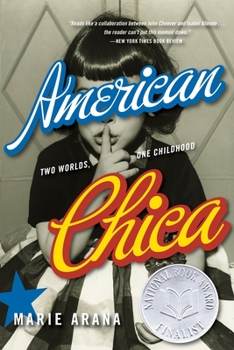American Chica: Two Worlds, One Childhood
Select Format
Select Condition 
Book Overview
In her father's Peruvian family, Marie Arana was taught to be a proper lady, yet in her mother's American family she learned to shoot a gun, break a horse, and snap a chicken's neck for dinner. Arana shuttled easily between these deeply separate cultures for years. But only when she immigrated with her family to the United States did she come to understand that she was a hybrid American whose cultural identity was split in half. Coming to terms with this split is at the heart of this graceful, beautifully realized portrait of a child who "was a north-south collision, a New World fusion. An American Chica ." Here are two vastly different landscapes: Peru--earthquake-prone, charged with ghosts of history and mythology--and the sprawling prairie lands of Wyoming. In these rich terrains resides a colorful cast of family members who bring Arana's historia to life...her proud grandfather who one day simply stopped coming down the stairs; her dazzling grandmother, "clicking through the house as if she were making her way onstage." But most important are Arana's parents: he a brilliant engineer, she a gifted musician. For more than half a century these two passionate, strong-willed people struggled to overcome the bicultural tensions in their marriage and, finally, to prevail.
Format:Paperback
Language:English
ISBN:0385319630
ISBN13:9780385319638
Release Date:May 2002
Publisher:Dial Press
Length:320 Pages
Weight:0.63 lbs.
Dimensions:0.5" x 8.2" x 5.5"













